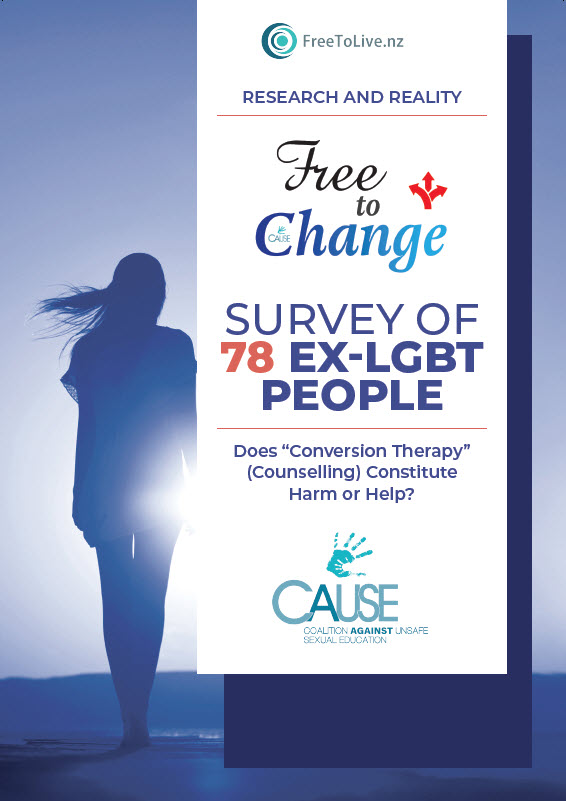FREE TO CHANGE  has collected the real life stories of 78 people who actually have changed from the gay lifestyle and were able to live comfortably with their birth gender.
has collected the real life stories of 78 people who actually have changed from the gay lifestyle and were able to live comfortably with their birth gender.
• These people say that they are very happy they made that change and were very grateful that they had therapy and counselling. Some had secular counselling and some had religious counselling but all were glad that this therapy helped them make these changes.
• All are content with the changes that have occurred, with many in stable heterosexual relationships and others having de-transitioned back to their gender at birth.
• These stories show that that these therapies resulted in marked improvements in their mental health and marked reductions in suicide risk
• This strongly suggests that any laws that prohibit such therapy will actually INCREASE suicide risk and passing these laws will unfortunately result in MORE young Australians taking their lives.
La Trobe University’s report Preventing Harm, Promoting Justice, relies on the testimony of just 15 individuals who found “conversion therapy” harmful and damaging. They have explained that “as survivors, we want Australians to know it is not just the practice of conversion therapy that is harmful, but that much of the damage is done by the ideology that underpins the pseudo-therapies.” They object particularly to the representation any form of sexuality or gender identity as a form of “brokenness” that should be fixed. Their
assertions that banning conversion therapy is not only right but necessary demands us first to accept that:
1. minority sexual orientations or gender identities are never fluid; or
2. that, since one is not better than another, denying individuals assistance in seeking change will have no negative impact on their lives; and
3. that change does not sometimes occur organically in the course of exploring previous life trauma or abuse.
The authors of La Trobe’s Preventing Harm, Promoting Justice, claim to have set up a comprehensive study of all LGBT therapy experiences. The evidence presented here demonstrates a glaring gap in their research. Their report, arguably by design, examines only one side of the question and looks only at negative experiences. All that is necessary to counter-act their claims that “conversion therapy” is universally damaging and harmful to the extent that it demands criminal legal penalties, is evidence that just one person who experienced unwanted same-sex attraction or just one person who experienced gender dysphoria, has found lasting change and/or relief through counselling. This report presents the collated experiences of 70 such a people.

